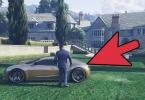He visited the city of Dudinka, the administrative center of the Taimyr Dolgano-Nenets District of the Krasnoyarsk Territory.
The Primate of the Russian Orthodox Church was accompanied by the manager of the affairs of the Moscow Patriarchate, the head of the Administrative Secretariat of the Moscow Patriarchate,.
At the gates of the Vvedensky temple in the city of Dudinka, His Holiness was met by the head of the Taimyr Dolgan-Nenets municipal district S.A. Tkachenko; rector of the Vvedensky church, dean of the Taimyr district, head of the missionary department of the Norilsk diocese, Archpriest Georgy Itskov; Director of the Polar Transport Branch of PJSC MMC Norilsk Nickel; Director of the Dudinsky seaport A.A. Novakov.
Representatives of the indigenous peoples living in Taimyr - Dolgans, Nenets, Entsy, Evenks, Nganasans - greeted His Holiness in their native languages.
Employees of the Polar Transport Branch of PJSC MMC Norilsk Nickel, employees of the Dudinka seaport, and residents of the city gathered on the square in front of the church, located in the administrative center of Dudinka.
His Holiness Patriarch Kirill visited the Vvedensky temple, after which he addressed the audience from the steps of the temple.
As a gift to the church, His Holiness Vladyka gave the icon of the Mother of God "Tenderness".
In consideration of the labors for the good of the Holy Church, His Holiness Patriarch Kirill awarded the rector of the Vvedensky Church, Archpriest Georgy Itskov, the right to wear a pectoral cross with decorations.
On the square near the temple, His Holiness was greeted by children from the Chorguyachi group operating at the Taimyr House of Folk Art, in the national costumes of the Taimyr peoples.
His Holiness the Patriarch talked with children and representatives of the indigenous and small-numbered peoples of the Far North.
“Once again I want to wish you from the bottom of my heart: take care of yourself, your families, relatives and friends, especially young people. Save the Lord, my dears, help you God. I will remember this meeting forever, ”said the Patriarch.
Children presented His Holiness with baskets with gifts of Taimyr nature - cloudberries, blueberries and lingonberries. His Holiness Patriarch Kirill presented the children with gifts.
The head of the Dolgano-Nenets municipal district S.A. Tkachenko presented His Holiness with an image of the temple in Dudinka made of mammoth ivory.
His Holiness Patriarch Kirill blessed the residents of the city.
From Dudinka, His Holiness Patriarch Kirill of Moscow and All Russia flew to Khatanga.
The first stone church in the village of Dudinskoye was built by the merchant of the 3rd guild, Samuil Laptukov, in 1844. In 1854, the stone church was dismantled by the merchants Sotnikovs, and in 1855 a wooden church was built without a bell tower. According to the metric books of the Dudin Vvedenskaya Church, before the revolution of 1917, its parish was 1178 people, 596 people were foreigners, i.e. indigenous people of the Yenisei region.
Dudinskaya Vvedenskaya Church ceased to function in 1925. The last entries in the registers of birth date back to 1924. Only in 1991-1992 the question arose about the revival of the Orthodox community, and then about the construction of a church.
In September 2000, the consecration and installation of domes with crosses on the temple took place.
At present, services are regularly held in the church, and there is a Sunday school for children. There are two priests serving in the temple, who take care of the remote villages of the Taimyr Peninsula.
Press Service of the Patriarch of Moscow and All Russia
On September 10, 2018, His Holiness Patriarch Kirill of Moscow and All Russia, within the framework of his visit to the Norilsk diocese of the Krasnoyarsk Metropolitanate, visited the village of Khatanga, one of the northernmost settlements of Russia, located in the Taimyr Dolgan-Nenets District of the Krasnoyarsk Territory, according to Patriarchia.ru.
The Primate of the Russian Orthodox Church was accompanied by Metropolitan Varsonofy of St. Petersburg and Ladoga, Metropolitan of Krasnoyarsk and Achinsk Panteleimon, head of the Administrative Secretariat of the Moscow Patriarchate, Archbishop Sergiy of Solnechnogorsk, Bishop of Norilsk and Turukhansk Agafangeli.
At the airport of Khatanga, His Holiness was met by the head of the rural settlement of Khatanga A.V. Kuleshov. From the airport, the Patriarch went to the Epiphany Church, where His Holiness was greeted by the rector, Hieromonk Evfimiy (Goncharov) and the residents of Khatanga.
At the church, His Holiness Patriarch Kirill performed a prayer service.
In his welcoming speech, Hieromonk Euthymius noted that in the four centuries of the existence of the temple in Khatanga, the Primate of the Russian Church has visited it for the first time. The rector of the temple presented His Holiness with a carved image of a deer hunter and a handmade Orthodox calendar made by Dolgan craftsmen.
His Holiness Patriarch Kirill addressed the audience with a Primary Hierarchical word:
“Your Eminence, Your Grace! Father Euthymius, dear residents of Khatanga!
It is a great joy for me to come to you today and pray with you. Khatanga is the northernmost Christian parish in the world, and not only among Orthodox parishes. And when you think about the fact that our pioneers, Orthodox people, came here 400 years ago and founded this temple, then you understand what kind of power our people possessed. 400 years ago, the Time of Troubles just ended, but even after the turmoil, which so undermined the strength of the country, there was still the strength to go towards the sun - without maps, without roads - and arrive here, in Khatanga. And the first thing our people did was build Orthodox churches. Therefore, Khatanga is not just a northern village, it is a very special place on the map of the world and especially on the map of the Russian Orthodox Church.
When I was asked why I was going to Khatanga, I answered this question to few people. But I have just told you why I am here - because this is a special place associated with the special feat of those who lived here, who arranged life here and who live here today. I am glad that you have gathered in such a crowd to pray with me, because prayer reaches heaven, the Lord answers us, through prayer we become stronger.
And how important it is that the Christian faith does not leave our lives! Probably, here, in a remote place, the presence of God and the need to communicate with God are especially felt. I would like to express my deep gratitude to all of you for all that you are doing here. You support a village so important for our country, you create families, and I am glad to see so many children and young people here. This means that Khatanga has a future, and the future will certainly be good.
But for this to be so, we must all try very hard. Of course, you need to work hard, equip your village, but all this is possible only if a person has inner strength. First of all, the strength to overcome your own weaknesses, your sinful inclinations; the power to make life around you brighter, more beautiful, better.
Now, if there is an inner strength, then a person and around himself spreads everything that serves good and truth. And our inner strength is from God. A person can have strong muscles or be a good specialist, but if there is no inner strength of mind, then such a person can do little in his life. Therefore, I would like to wish all of you, my dears, first of all, peace, love in your families. So that the next generation, born here and still in childhood, will adopt the wonderful traditions of Khatanga from the older generation, so that this generation will keep the faith, that people will not leave here, but, on the contrary, will do everything to make life in the North better. God grant that by the power of God all sorts of vices are cast out and we become stronger, more beautiful, so that life around us becomes better.
May the Lord protect each of you - dads and mothers, grandparents, children and grandchildren. I would like to say once again that I am very glad to see all of you in front of me against the background of this northern landscape, near the walls of the ancient temple, where the candle of Orthodoxy has been glowing for 400 years, and God forbid that no winds ever extinguish it. May God help you in all the circumstances of your life. "
As a gift to the church, His Holiness Patriarch Kirill gave the icon of the Savior; the faithful were given icons of the Mother of God with the Patriarchal blessing. The Primate of the Russian Church thanked the rector of the church, Hieromonk Euthymius (Goncharov) for his labors and awarded the right to wear a cross with decorations.
On August 17, His Holiness Patriarch Kirill of Moscow and All Russia began his First Hierarchical visit to the Diocese of the Russian North.
The trip of the Primate of the Russian Orthodox Church His Holiness Patriarch Kirill to the diocese of the Russian North began with a visit to one of the most remote territories of the Russian State - the Novaya Zemlya archipelago. In the coming days, the Primate will visit the Naryan-Mar, Veliky Ustyug and Kotlas dioceses, as well as the Spaso-Preobrazhensky Solovetsky stavropegic monastery. Some of these places will host the Primate for the first time. Bishop of Veliky Ustyug and Totem Tarasiy (Perov) told Tsargrad TV channel about this truly unique visit, its significance for the northern dioceses and the peculiarities of church service in the Russian North.
Constantinople: The Holy Vladyka, our Primate, His Holiness Patriarch Kirill of Moscow and All Russia, has repeatedly visited the Russian North, including its gates, the Vologda region. But this Primary visit is special: His Holiness will visit many places where he has never been before. What is the significance of this visit both for the Veliky Ustyug diocese and for the Russian North as a whole?
Bishop Tarasius: For the entire Russian North, I, of course, do not undertake to answer, but it is no secret that His Holiness is very sensitive to our northern shrines, often visits both Valaam and the Solovetsky Monastery. For him, this is obviously connected with personal experiences: his grandfather was a prisoner of the Solovetsky camp. Of course, the warmth of His Holiness towards the North is felt, and such external moments indicate that the Patriarch really pays special attention to the Russian North.
For the Veliky Ustyug diocese, the visit of His Holiness is, of course, very important. First of all, it is significant for believers that the prayer of the Primate, Primate of our Church will be performed here, on our earth. His prayer and fatherly support is important for us. The pastoral word spoken up close, face to face, and not from the TV screen, and the response will be lively and real.
I have no doubt that His Holiness's Primate Sermon will serve to strengthen many in the faith, and for some, perhaps, it will become that necessary reason to turn their gaze towards God, to rethink their life and attitude to faith in a different way. In the development of the diocese, I think this visit will also play a role. We hope for His Holiness's support in resolving issues related to the restoration of our shrines, for his advice and experienced look.
We are grateful to His Holiness Patriarch for the fact that in his really very busy schedule he found a place for a visit to Veliky Ustyug, thereby completing his visit to the Vologda Metropolitanate. In June, His Holiness Vladyka visited the Vologda and Cherepovets dioceses, and now he is also in Veliky Ustyug.
Ts .: Your whole life is connected with the Russian North. What, in your personal experience, are the peculiarities of church service, including missionary activity, in the northern dioceses of our Church?
Bishop Tarasius: The North is a special place. I would say that the main feature of people here is the absence of falsehood. A distinctive feature of the northerners is sincerity. Here it is more evident, probably due to climatic conditions. The North connects people with a strong-willed character, perseverance, obstinacy in their views. On the one hand, this is good, it provides a solid foundation, but, on the other hand, it requires a more attentive approach, including a missionary one. Missionary work here requires great dedication.
Of course, church ministry is hard everywhere. I do not want to now compare the ministry in Moscow, for example, and here. Difficulties are everywhere. Here people are less protected socially, they have less entertainment, but they are waiting for the Word, a living testimony of God. If we compare the Veliky Ustyug diocese and the Murmansk one, then the Veliky Ustyug diocese is the real Russian North. A large number of representatives of different peoples and cultures, representatives of other religions live in the Murmansk diocese, and the Ustyug land has preserved its originality and tradition. And this tradition allows people to preserve their insides, their essence, hear the word of God and be interested in it.
With all this, in many moments missionary work here must be started from the very basics, from the elementary concepts of faith. And in this, of course, there is our flaw, rather even a catechist rather than a missionary one. In many ways, ideas about faith are reduced to the ritual side, which requires educational work. We need, first of all, to convey to the consciousness of people that the main book of Christians, the main guide, is the Gospel. It is not just to instill in people the habit of the ceremony, but to convey the Word of God. Genuine enlightenment is needed so that people associate Christianity not only with Epiphany water and sprinkling of eggs on Easter. The need for education, by the way, also applies to the missionaries themselves. It is also necessary to raise the level of general culture. A missionary must be able to speak about God through the example of secular art and literature.
In general, the most important missionary message is how we ourselves live, because you can say as many beautiful words as you like, but if people see that the life of a clergyman is far from the truths that he voices, then his word will not find a response in their hearts. ... And on the contrary, the priest may not be at all eloquent, but teach love by his very life. This is the main missionary work. Without this foundation, everything is meaningless. No matter how beautiful words we say, no matter how many books we read, no matter how many meetings we hold, everything is useless if there is no living basis.
Ts .: The recent tragedy in Karelia has raised the issue of preserving Russian wooden church architecture, first of all, of course, the northern one, with particular acuteness. How significant is this problem for the Veliky Ustyug diocese? What is being done in this direction?
Bishop Tarasius: The problem of preserving monuments of wooden architecture is not as urgent for us as it is for Karelia, because we have mostly stone churches. Of course, the issue of preserving the monuments is also worth it, but it is being resolved in a regular mode, in cooperation with the museum and the authorities. This, of course, also has its own difficulties. We understand that the state stands for the protection of temples-monuments, and this is good. But the current system of coordination of the restoration process often leads to the fact that even minor repair work for the temple results in months or even years of waiting for real action and huge, often completely unaffordable sums.
Of course, control by the state is necessary, I am not talking now about the prospect of permissiveness in restoration issues, but it seems to me that the list of works required for strict coordination should be revised somehow. In the end, we are doing a common cause and, first of all, we must be focused on the result. In our case, it often happens that while the monument is being destroyed, the security authorities do not care about it, and as soon as someone starts to restore it, directives and fines begin to pour in. In my opinion, this is not fair, and this is the main problem today.
Ts .: The great Ustyug in the popular mind is very often associated with the "homeland of Santa Claus", is there any pagan remnants in this? How do you get along with such a "neighbor"?
Bishop Tarasius: In response, I can only ask: "Who is associated with?" Probably, to a greater extent among journalists, who for some reason over and over again exaggerate this topic instead of talking about the saints of the Ustyug land, about our famous explorers.
Speaking about Santa Claus, it is necessary to clearly distinguish between the concepts of the project and the people who are involved in it. Ustyuzhan people do not worship Santa Claus, there is no cult of him. Initially, it was a project aimed at solving many social problems that were acutely faced by the region in a difficult economic period, a project that has a good and positive foundation. Paganism and a fairy tale are still somewhat different things. And we cooperate with people who are involved in this project, they often come to our aid. As for tourists, when they come to Santa Claus, they come to our churches, discover the beauty of the Russian North, the history of our saints.
As for pagan relics, to be honest, I am much more worried about the fact that we have crowds of people going to Baptism for water, and only a few to Communion. We must fight not with Santa Claus, but with pagan remnants in our churches. We are not thinking about that, we are fighting against that.
Ts .:Your region is very rich in Orthodox shrines. Please tell us about it. What are the holy places of Veliky Ustyug worth visiting for an Orthodox pilgrim?
Bishop Tarasius: Veliky Ustyug is the birthplace of St. Stephen of Perm, the place of the feat of Saints Procopius and John of Ustyug, Cyprian of Ustyug, our locally revered patrons of family and marriage - John and Mary of Ustyug. Much can be said about Veliky Ustyug, because this is a truly prayerful land, rich in the exploits of saints from ancient times to the era of the new martyrs. Come, pray, get acquainted with the history of our ancient city - the same age as Moscow, visit our churches. We welcome guests and are always ready to provide assistance if required.
On September 10, 2018, His Holiness Patriarch Kirill of Moscow and All Russia visited the Church of the Life-Giving Trinity in the Talnakh district of the city of Norilsk.
The temple was built in 2005-2006. The church has a Sunday school for children and adults.
His Holiness was accompanied by the manager of the Moscow Patriarchate, Metropolitan of St. Petersburg and Ladoga Varsonofy, Metropolitan of Krasnoyarsk and Achinsk Panteleimon, head of the Administrative Secretariat of the Moscow Patriarchate Archbishop Sergiy of Solnechnogorsk, Bishop of Norilsk and Turukhansk also President Agafangel Nikitel, and V. O. Potanin.
His Holiness Patriarch Kirill addressed those gathered in the church with the word:
“Your Eminences! Your Grace, Vladyka Agafangel! Dear Vladimir Olegovich! Dear fathers, brothers and sisters!
I am very glad to visit Talnakh, to visit this holy temple, to meet with you. You live in the very north, but the more difficult the climatic conditions, the stronger a person must be. Weak people do not live in such places, they simply cannot live here. And for a person to be strong, he must first of all be a strong spirit, because even if the muscles are strong and the spirit is weak, it will be difficult to live in such conditions.
That is when we turn to God, when we draw Him to our life, when we ask Him to participate in our life by His grace, His power, when we want to be strong - the Lord gives us this strength. That is why it is so important that such places have temples like this wonderful prayer temple. We have now laid the foundation for a temple in honor of the holy Great Martyr Barbara, and these temples should become the spiritual centers of life in Talnakh. I hope that it will be so, that the Orthodox faith will not dwindle in our hearts. And life shows that this is so. We were told in due time that the Church would not survive the times of atheism, persecution - it did. Then the pessimists told us: "Now the people will begin to live richly, prosperously and calmly, and there will be no reason to pray and believe in God." They were wrong again, because until the end of the century people will believe in God, pray to Him and pin their hopes with Him.
I would like to wish you all strong faith and purity of prayer. Blessings to your homes, your relatives and friends, because it is very important that there are strong families here, so that the rear of the workers who work in the most difficult conditions are strong. Therefore, the role of wives and mothers is very important - just as, of course, the role of husbands and sons. May the blessing of God be over all of you. "
As a gift to the temple, the Primate of the Russian Orthodox Church presented a copy of the Donskoy Icon of the Mother of God. The icons of the Most Holy Theotokos with the Patriarchal blessing were handed out to the faithful.
Press Service of the Patriarch of Moscow and All Russia




